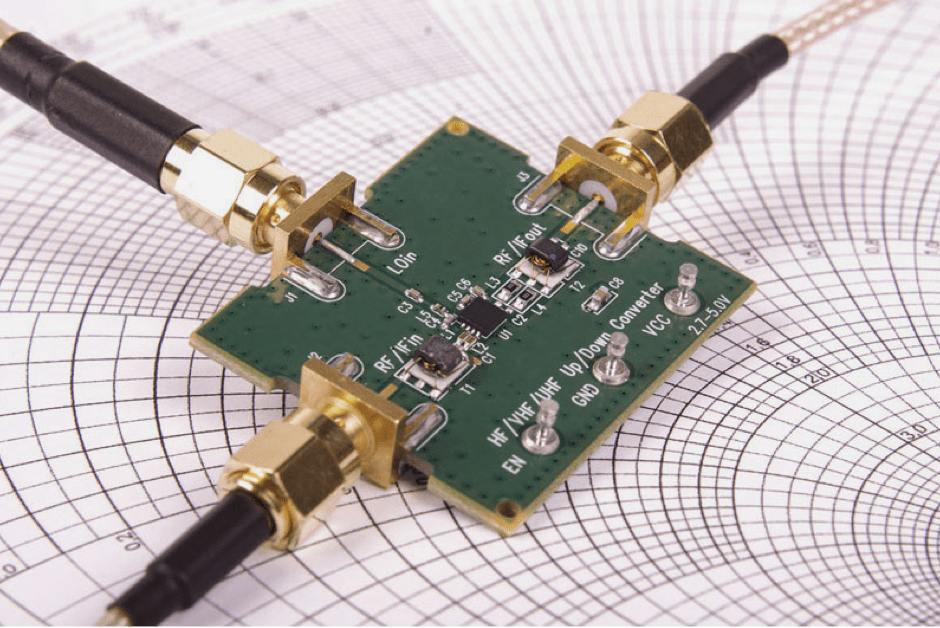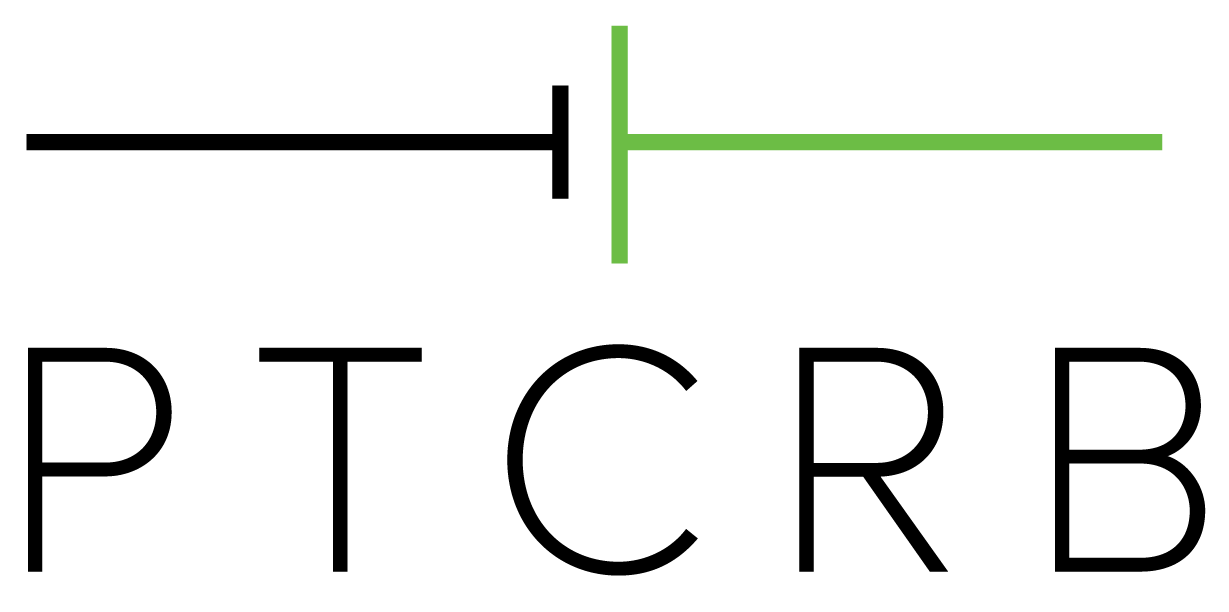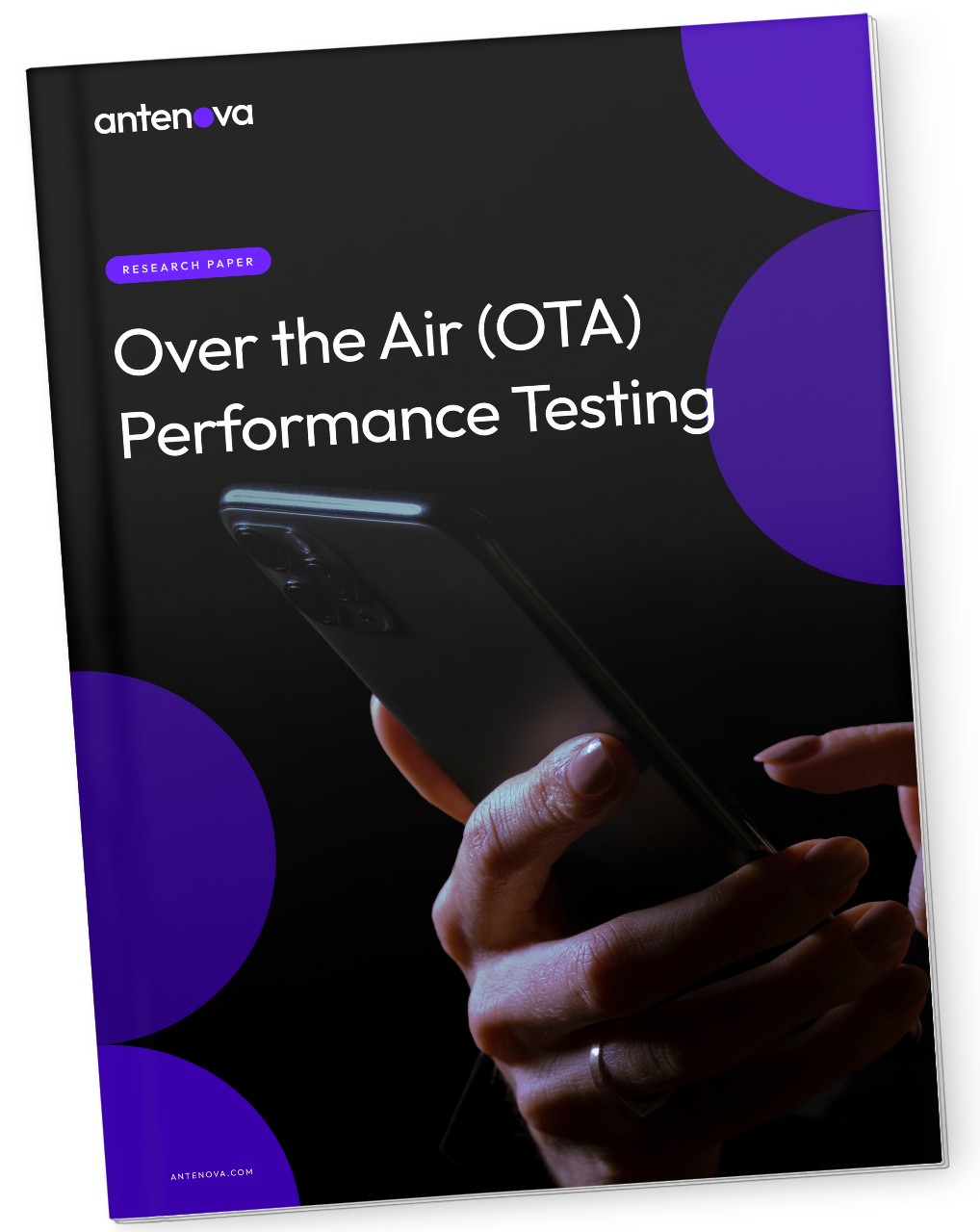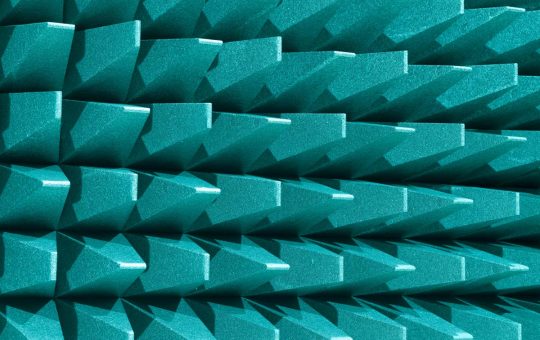What’s next?

Testing & certification
If you have implemented a cellular antenna within your device, your device may require certification.
You will find below some helpful guidance and advice on how you can go about the certification process and where Antenova can help.
What certifications will your device need?

PTCRB is a certification program for wireless devices in North America to ensure regulatory compliance.
European and some non-European nations accept the CE Mark as a technical conformity with Health & Safety regulation.

All radio frequency equipment produced, sold or distributed in the US must have FCC certification.

Every market will have unique requirements for devices launching – we can help whatever your location.
Over-the-air testing
Over-the-air testing is an essential element of any successful project and can help projects avoid costly delays. Over-the-air tests seek to provide manufacturers with a representative view of how a device will perform in the ‘wild’. The tests identify the impact of noise and detuning, the quality of the RF impedance matching and efficiency. RSE, TIS and efficiency are just three of the measures that carriers will assess.
Anechoic testing facilities are ideal to run these tests. In addition, the use of phantom body equipment can be used to truly assess the impact upon performance that users will have on handheld and wearable devices. For more information about OTA testing, download our guide ‘What is over-the-air testing?’
Pre-compliance testing
Pre-compliance testing is the best way to ensure a device passes all relevant certifications first time. Even for devices using Bluetooth or WLAN, testing can be worthwhile to diagnose potential performance issues before they manifest themselves. It is vital this is conducted as early into a project as possible. By identifying issues early on, it avoids the need to delay and/or redesign elements of the product to enable effective performance.
Total radiated power (TRP)
TRP measures the overall power efficiency of the antenna.
Radiated spurious emissions (RSE)
RF energy radiated at erroneous frequencies is a waste of energy.
Specific absorption rate (SAR)
SAR tests the absorption of material nearby an antenna, including casing materials, and human skin if a handheld device.
The roadmap to certification
Over-the-air testing
OTA testing is important as it enables device manufacturers and network operators to more accurately predict real-world performance of a device. Download our whitepaper for more information on over-the-air testing.

Testing & certification resources
Anechoic testing by Antenova
Antenova can provide help and guidance on testing, including initial Gerber file reviews and passive testing. We also have a number of partners who can provide full network certification.


